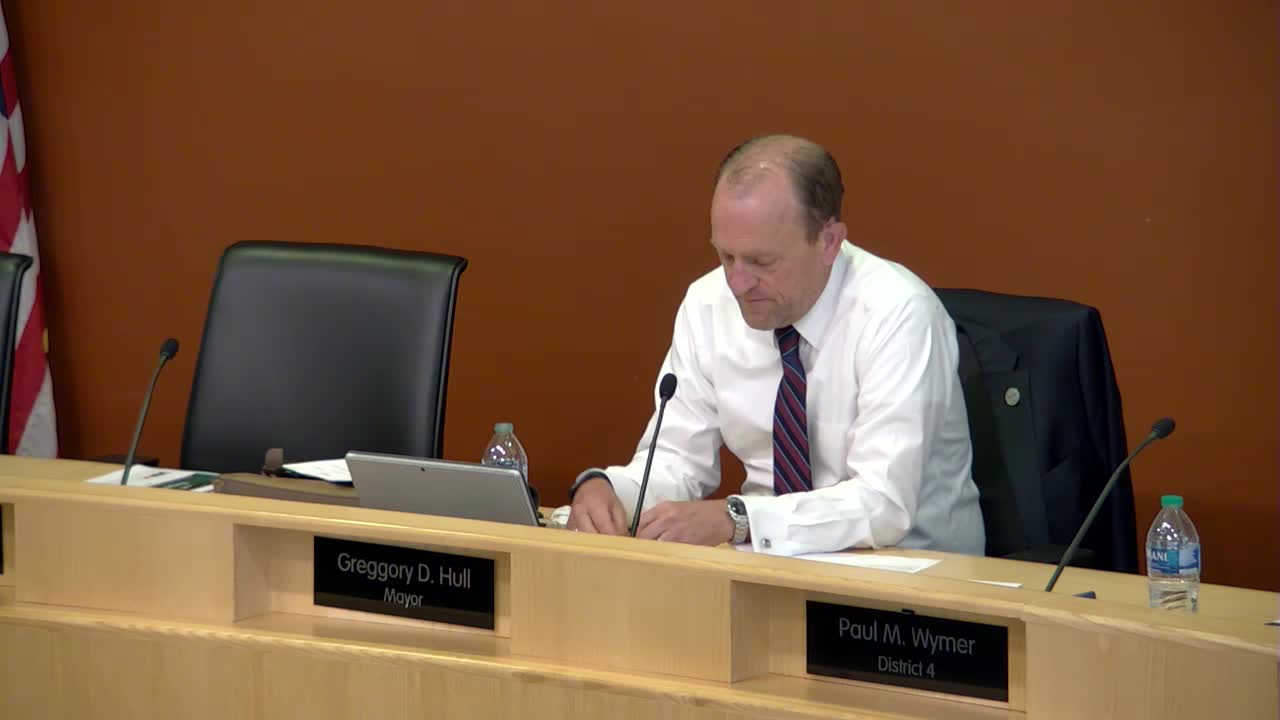Waste Management Crisis Sparks Outrage Over Rising Costs and Service Cuts
August 20, 2024 | Rio Rancho, Sandoval County, New Mexico
This article was created by AI summarizing key points discussed. AI makes mistakes, so for full details and context, please refer to the video of the full meeting. Please report any errors so we can fix them. Report an error »

During a recent government meeting, council members addressed pressing concerns surrounding waste management, particularly recycling and landfill issues. A councilor expressed frustration over the rising costs of waste services, highlighting complaints from residents about damaged recycling bins and the burden of replacement fees. The councilor noted that residents often face challenges when trying to access landfill services, especially with the requirement for proof of billing, which can complicate matters for families.
In response, city officials clarified that residents should not be charged for bin replacements unless the damage was caused by misuse, such as burning or driving over the containers. They encouraged residents to report any issues directly to them for resolution.
The discussion also touched on the complexities of recycling contamination. Officials explained that contamination can occur when non-recyclable materials, particularly food waste and moisture, are mixed with recyclables. They emphasized the importance of proper recycling practices and noted that bagged recyclables are often treated as trash due to safety concerns during processing.
The council also reviewed the financial aspects of waste management, including a built-in annual increase of 2.5% in service costs, which has not kept pace with rising operational expenses. The officials acknowledged that while the city has made efforts to educate residents on recycling, many still misuse their recycling bins, treating them as secondary trash cans.
In a significant point, it was revealed that the transition from weekly to bi-weekly recycling pickups did not result in a noticeable change in the tonnage of recyclables collected, indicating that many households were not fully utilizing their recycling services.
The meeting concluded with a commitment from city officials to continue improving waste management services and to address resident concerns more effectively. They reiterated the importance of community engagement in enhancing recycling practices and reducing contamination rates.
In response, city officials clarified that residents should not be charged for bin replacements unless the damage was caused by misuse, such as burning or driving over the containers. They encouraged residents to report any issues directly to them for resolution.
The discussion also touched on the complexities of recycling contamination. Officials explained that contamination can occur when non-recyclable materials, particularly food waste and moisture, are mixed with recyclables. They emphasized the importance of proper recycling practices and noted that bagged recyclables are often treated as trash due to safety concerns during processing.
The council also reviewed the financial aspects of waste management, including a built-in annual increase of 2.5% in service costs, which has not kept pace with rising operational expenses. The officials acknowledged that while the city has made efforts to educate residents on recycling, many still misuse their recycling bins, treating them as secondary trash cans.
In a significant point, it was revealed that the transition from weekly to bi-weekly recycling pickups did not result in a noticeable change in the tonnage of recyclables collected, indicating that many households were not fully utilizing their recycling services.
The meeting concluded with a commitment from city officials to continue improving waste management services and to address resident concerns more effectively. They reiterated the importance of community engagement in enhancing recycling practices and reducing contamination rates.
View the Full Meeting & All Its Details
This article offers just a summary. Unlock complete video, transcripts, and insights as a Founder Member.
✓
Watch full, unedited meeting videos
✓
Search every word spoken in unlimited transcripts
✓
AI summaries & real-time alerts (all government levels)
✓
Permanent access to expanding government content
30-day money-back guarantee

